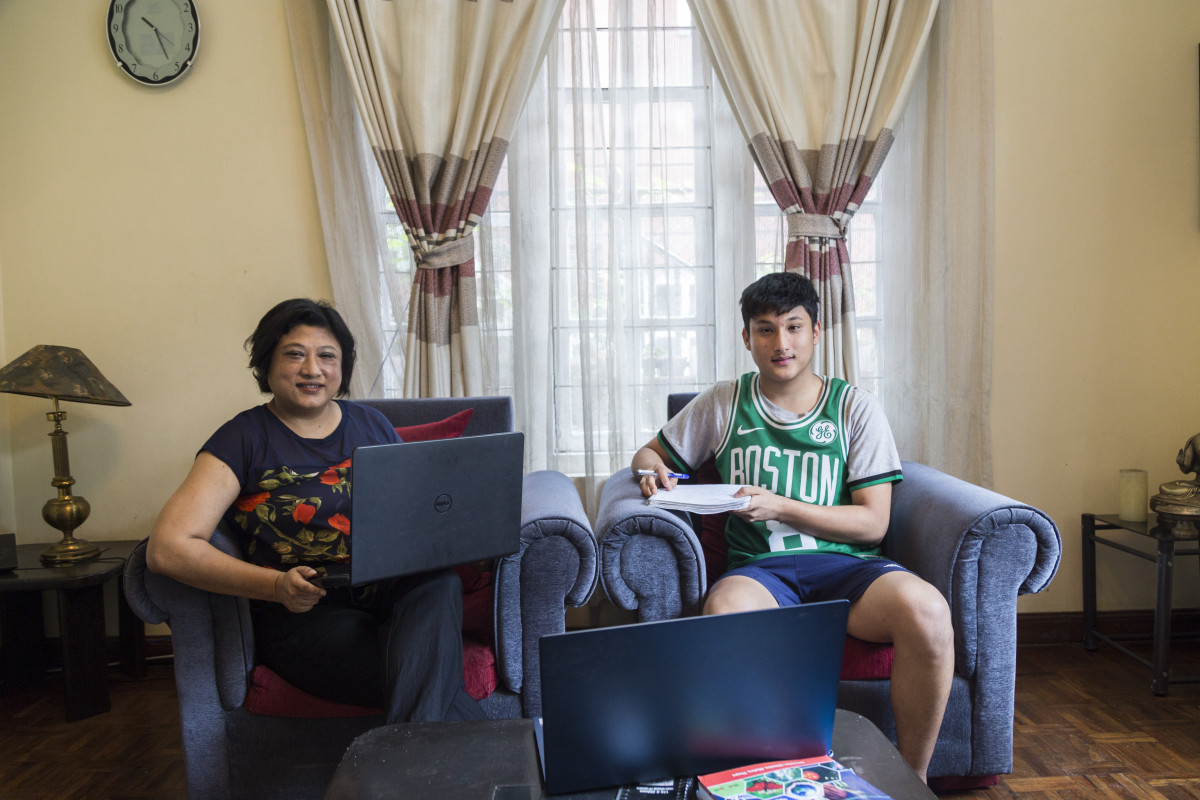In their own words: Supporting Nepal’s marginalised communities
Published: Aug 18, 2020 Reading time: 4 minutes Share: Share an articleShikha Joshi joined People in Need (PIN) in Nepal almost four years ago, after a decade and a half of working in the development sector. For the 46-year-old mother of two, helping “underprivileged and marginalised people lead dignified lives” is personally and professionally rewarding. Joshi recently discussed her experience working in Nepal’s development sector during the COVID-19 pandemic, and explained why, in her line of work, having a Plan B for project implementation is always wise.

How did you become a humanitarian worker? Why did you choose this work?
It is because of my profound interest in humanitarian work that I decided to pursue a career in the development arena. I have been working in various development sectors for over 15 years, including health and nutrition; education; human rights; child welfare and social protection; and HIV/AIDS. Almost all of the projects I have been a part of were implemented in collaboration with the Nepalese government and had sustainable outcomes.
It gives me immense pleasure to help underprivileged and marginalised people lead dignified lives. Their smiles give me happiness and satisfaction that money cannot buy.
When did you join PIN? What is your position?
Prior to joining PIN, I worked as a frontline worker during the devastating earthquake of 2015, and I helped during implementation of the landslide and flood response. I joined PIN in December 2016, and since 2017, have been engaged in a project that focuses on resilience building for earthquake survivors. The programme helps survivors' of 2015 earthquake by facilitating them to enroll in Government endorsed policies and benefits of Resettlement schemes- “Land Grant” and “Housing Grant”. In addition, the project also takes account of ensuring Social Protection and Women Empowerment.
What is the biggest obstacle communities are facing?
Nepal is considered one of the richest countries of world in water resources, ironically, people specially living in hilly areas face severe water scarcity. Many inhabitants of these regions rely on small streams, and they often spend hours fetching water for domestic use.
Under the social protection component of my project, small grants are provided to groups of women for the implementation of community projects; 90 percent of the funds are utilised to improve access to clean drinking water and other interventions related to water, sanitation, and hygiene (WASH).
What difficulties do you face in your daily work?
Most of the areas where we work are remote mountainous regions, with poor road access and a lack of facilities. The majority of these places are also prone to landslides, which worsen during the monsoon and rainy seasons. With the onset of the rainy season, access becomes even more difficult and walking is the only option.
How did COVID-19 influence your work?
Nepal was under lockdown for three months due to the COVID-19 pandemic, forcing us to work from home, halt all of our field work, and conduct all of our interviews over the phone. Now, although the government has loosened the restrictions, COVID-19 cases are rising. We have standard operating procedures [to follow and keep us safe]. Therefore, I have to take care of our staff and ensure physical and emotional well-being of my colleagues in addition to doing my own work
What are some of the biggest challenges and obstacles you have had to overcome in this response?
When the COVID-19 pandemic broke out and there was a nationwide lockdown, the project I lead was almost in its final phase. Many field activities needed to be completed for the monitoring and evaluation component, outreach was to be done with relevant stakeholders, and potential organisations were being identified to take over residual tasks after the completion of the project.
We managed to develop alternative ways of carrying out all of these activities, for instance, by hosting virtual meetings and by sharing photographs and videos recorded by beneficiaries, local partners, and social mobilisers.
What lessons did you learn along the way?
Humanitarian work is not easy; you encounter various challenges and hurdles and you need to solve problems promptly in order to have a wider impact. You have to be thoughtful, possess the foresight to see the consequences of your actions, and make decisions carefully. You also need to have contingency plans so that you are well-prepared to use alternative methods if your Plan A fails.
What challenges has the lockdown brought to your personal life?
I suddenly felt that my world was confined to my home, and the people I worked for belonged in a different universe.
Working from home was entirely new for me. Because of the extensive travel normally required by my job, I was rarely able to [spend so much time at home] in the past. I enjoyed it during the early weeks of lockdown, but later found it very boring and monotonous. I felt like my workload doubled, as I had to do my own work while helping my children with their studies and online classes. I even felt that working from home lowered my productivity because I cannot work as swiftly as I am used to. On top of that, I am now engaged in more administrative tasks rather than programmatic work.

